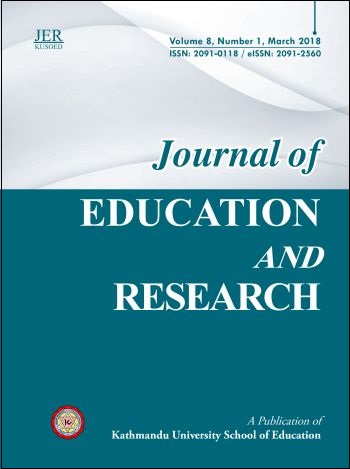Understanding Education Decentralization and 'Sustained' Elite Capture – Explicating Cases From Two Public Schools
Keywords:
Decentralization; elite capture; hegemony; capital; trustAbstract
The paper aims at uncovering the practices of educational decentralization in Nepal that started after the restoration of democracy in 1990. Though decentralization in education in Nepal began with the aim of greater community participation and autonomy to the needs and priorities perceived by the local level functionaries in school, it has been subject to elite capture in its governance. Because of control in planning, organization, management, financial liability and different activities for the education system, the paper argues that practices of educational decentralization have been shaped by the local elites who capture the local resources and power to operate the school with their network and 'one-upmanship'. While arguing so, the paper is based on the ethnographic case study of two public schools located in the Mid-Western region of Nepal. Applying the Gramscian concept of hegemony, the paper narrates the process of a 'sustained' selection of the School Management Committee Chairpersons and shows how they negotiate and balance their power to sustain their capture. The paper concludes that the informal mechanisms of individual attributes such as trust and capital are playing an important role in their sustained elitism.




